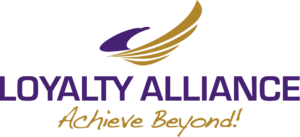Now that we’re more than halfway through 2022, it’s safe to say there’s been a rapid influx of information regarding Web 3. In March, more than 41,000 new articles referenced “Web 3,” especially as renowned global brands have been racing to claim their stake in everything from NFTs to Metaverses. Many believe the Web3 economy will grow to be worth as much as $13 trillion by 2030.
But without the vast resources of these global brands, how can the rest of us navigate this new technological area? The truth is it’s complex. Heck, for many, the computer itself is complicated enough! Can Web 3 apply to your business?
What is Web 3.0?
Web 3.0 is an all-encompassing term for the next iteration of internet technology.
New technology is almost always scary — whether it was switching from manually scribed books to the printing press, or from handwritten letters to telephone calls, or from 1-to-1 communication to broadcasting, first via radio and television to now via the internet and email, video sales letters, and webinars, change requires a massive leap of faith.
Now the centralized world of Web 2.0 that we operate in today is transitioning to a decentralized Web 3.0-oriented economy.
Web 2.0 had a centralized architecture that ultimately created an oligarchy of tech companies (M.A.G.M.A – Meta, Apple, Google, Microsoft, Amazon) that monopolized the business world, making it extremely difficult for innovative ideas to break through.
Blockchains, introduced in 2009, are the underlying technology that will enable new ideas and business models to thrive, especially in the knowledge and creator communities.
Web 3.0 democratizes the ability to build businesses that divert involvement away from unreliable intermediaries to direct interactions with customers.
One of the problems with the term Web 3.0 is that it means different things to different people. At its simplest, all it is is the next phase of the Internet. For most businesses today, it’s about changes in digital advertising with data going from third and first-party data sources to requiring zero-party data.
Web 3 Technology Can Be Disruptive
Most entrepreneurs are confused about knowing how or what they can or should do in this space, let alone comprehend the thought of competing in it one day. In fact, I’ve worked with a renowned small business developer who is upgrading existing software and creating new systems based entirely on the old Web 2.0 paradigm because he can’t comprehend how or why blockchain technology could be valuable in his offerings.
All technology, when first introduced, can be incredibly disruptive. You can ignore it, but like all advancements before it, such as the printing press, electricity, radio, television, mobile phones, and the internet itself, it’s coming whether you like it or not. It would help if you started somewhere to break down the barriers to Web 3.0 and start thinking about how it can impact your business today and in the future.
It’s worth thinking back nearly 40 years ago to the early days of the computer. I remember when I purchased my first personal computer in 1984, shortly after they were first introduced to the general public. There was trepidation and skepticism by many. In fact, in my first job, among a team of 40 peers, I was the only computerized person. I obviously saw its potential and benefited from it, but it was foreign to everyone, and they thought I was a bit crazy.
Today computers, whether desktops, notebooks, or smartphones, are integral to almost everyone’s lives, and we don’t give them a second thought.
“If you don’t know where you want to be in five years, how do you expect to get there?”
― Jay Samit, Author
Disrupt You!: Master Personal Transformation, Seize Opportunity,
And Thrive in the Era of Endless Innovation
The first step is not to be disheartened if you don’t yet have a clear vision of how your business will adapt to Web 3.0 and virtual worlds. It can feel overwhelming and appear inapplicable and unobtainable from a small business standpoint.
The old saying “slow and steady wins the race” directly applies when deciding whether or how to use Web 3 for your business.
Even Meta CEO Mark Zuckerberg has acknowledged that transitioning into Web 3 will be a marathon, not a sprint. His company’s Metaverse Project has a projected 15-year timeline. In other words, don’t feel overwhelmed or rushed. You’ve got time to wrap your head around Web3 and use your entrepreneurial mindset to stay ahead of the game rather than ignore the new space altogether. If you want to be a leader in your business, you can’t wait until it’s mainstream.
When embracing anything new, especially as expansive as Web 3.0, one of the keys to success is taking small steps.
“There is only one way to eat an elephant: a bite at a time.”
Desmond Tutu, Nobel Peace Prize-winning South African Anglican Bishop, and Theologian
What he meant by this is that everything in life that seems daunting, overwhelming, and even impossible can be accomplished gradually by taking on just a little at a time.
So before your jump in too quickly into things like NFTs and Metaverses, the first bite you can take into Web 3.0 is to understand how new privacy rules implemented regarding email marketing and digital advertising can and will affect your business.
Look at the tech platforms you already use within your business and learn what they are planning to incorporate Web 3. For example, if your business is in eCommerce, Shopify recently added some limited Web 3 functionality to its platform, including accepting cryptocurrency payments and working with NFT marketplaces.
Entrepreneurs Should Embrace Web 3.0 In Their Business
The bottom line is that entrepreneurs should embrace web 3.0 in their business because it is set to become even more crucial to how companies function. No matter what type of business you are in, the most successful embrace the concept of attraction marketing.
Attraction marketing is a process where you build relationships with your ideal customer; you engage them regularly with valuable content so that they know, like, and trust you. After you’ve established that relationship, you can consider selling to them.
This concept applies to all businesses because the company can attract an audience by sharing its expertise. A realtor can provide tips on buying and selling real estate; a plumber can give DIY tips or reviews of products, and an electrician can offer advice on reducing energy bills. The potential list here is endless, and it all is based on joining the creator economy.
Every Successful Business Should Be In The Creator Economy
Creator economies and NFTs are huge unlockers of human potential, and Web 3.0 offers an inexorable path toward individuals over institutions.
Suppose you don’t know what the creator economy is. In that case, it primarily consists of self-owned businesses that operate mainly on social media or digital platforms, selling a wide range of creative content. In addition to music, art and movies also include the far-reaching knowledge community that provides virtual courses, books, video instruction, webinars, and blogs. Its significance and application are far greater than a playground for wanna-be influencers.
Because it includes the knowledge community, every business is an expert in its particular niche. As an expert, customers look to people in those businesses for advice on how to best solve practical problems. The more successful companies that share this knowledge and provide value to potential customers, the more they attract new customers, get referrals and build their core business. At the same time, they can create secondary income streams
According to SignalFire, the “creator economy” is now valued at more than $100 billion, with some 50 million people now considering themselves creators,
As more and more individuals and small businesses gain control over their economic well-being and potential, new technology gives these entrepreneurs the tools to develop their businesses and scale. It won’t be surprising that, within the next two decades, there could be numerous publicly traded companies with just one full-time employee, making millions in profits because of the globalization of markets.
Over time, Web 3.0 should begin to feel a little less foreign, and when the time comes to implement these new digital offerings into your business model, you’ll be ready to go! Web 3 can apply to your business.
What do you think?
- How A Traditional T-E-A Ceremony Translates to Ranking High on Google - April 25, 2023
- On-page SEO is Necessary if You Want Traffic - September 15, 2022
- Off-Page SEO is Essential for MegaFluence - September 10, 2022



As at now I just can’t imagine how this whole is playing out and how we will be involved. I am however watching out closely.
It is already playing out, but in different ways for each company. Unfortunately, too many are jumping in with reckless abandon for the sake of jumping in, and without regard to their brand. Our approach is brand centric or brand forward, so any consideration must be in alignment with a brand before even giving it any consideration.